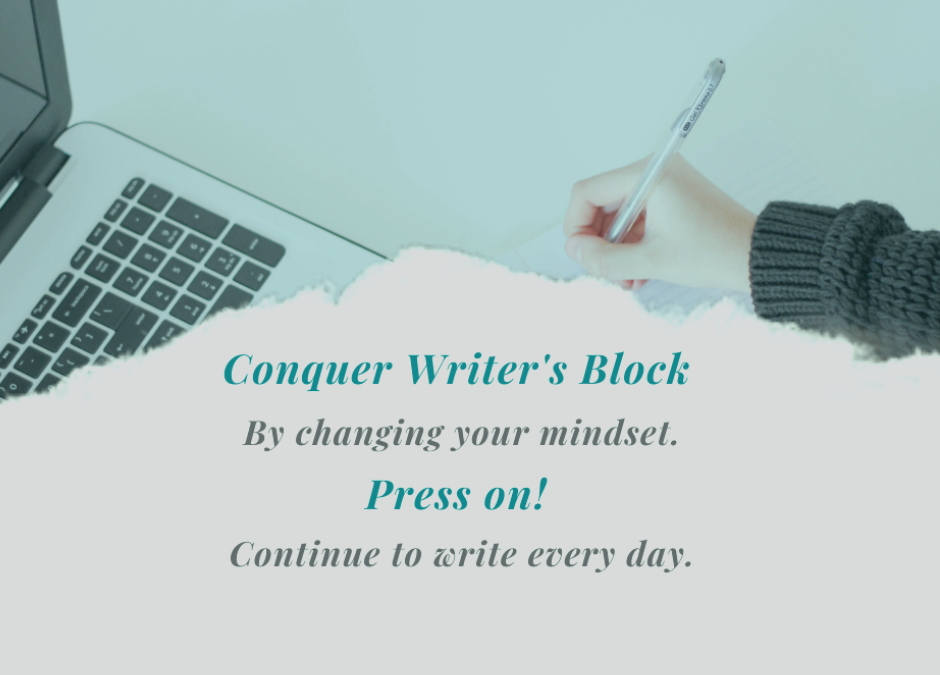
by Cori-Leigh | Blogging, Writing |
Are you struggling with your writing? Have you ever found it difficult to write, publish, and post consistently? Those times when the words and ideas just don’t flow? For a couple of years, it was tough for me to write consistently while helping my mom and caring for my dad, who was living with cancer and dementia.
My dad passed away in November of 2022. My writing fresh content was a challenge. In the year that followed, I still struggled to concentrate and write consistently.
From developing ideas to writing and publishing posts to the flow just wasn’t there. I often stared at a blank screen and wondered where my creative spark had gone. But over time, with patience and persistence, things began to shift.
Maybe you’ve been there too. If so, you’re not alone.
Writing slumps happen to all of us, often during the times we most wish they wouldn’t. Life gets busy. Responsibilities pile up. Grief, exhaustion, or a lack of motivation can creep in quietly. Before you know it, writing feels like an uphill battle.
But here’s the good news: your creativity hasn’t disappeared. It’s simply resting. And like anything that needs restoration, it can be awakened again.
Understand Why Writing Feels Difficult
There are many reasons why writing can feel hard, even when we want to do it. Identifying the root of the struggle is often the first step toward getting unstuck.
Perfectionism convinces us that everything we write and create has to be perfect. It happens before we start writing. But writing isn’t about getting it perfect on the first try. It’s about getting it written, published and out there. First drafts are meant to be rough. You can always polish later, but you can’t revise a blank page. Give yourself permission to write badly. That’s where the magic starts.
Exhaustion
Physical and emotional fatigue can drain your creativity. I experienced this deeply while caring for my father. Even after his passing, I carried the emotional weight, and my energy to create just wasn’t there.
Grief and exhaustion don’t follow a timeline. If you’re navigating loss or chronic stress, your energy and focus may be limited. That’s okay. Healing takes time, and restoration often begins with rest.
Over-commitment
When your plate is too full, writing naturally takes a backseat. I had to step back and re-evaluate my commitments before I could find space to write again.
If your days are packed with to-do lists and responsibilities, try lightening your load. Simplifying your schedule, even in small ways, can help you make time for writing again.
We’ve all been there! Those times when we stare at a blank page, waiting for the words to come. It’s easy to feel stuck, but the truth is, your creative flow can be reignited.
A simple shift in perspective can help you get back to your writing. Small practical steps that lead to bigger changes over time.
Here are several ways I was able to get back consistently writing and publishing content again;
Reading can gently stir your creativity. Whether it’s blogs, books, poetry, or articles, immersing yourself in the written word can remind you why you fell in love with writing in the first place.
Sometimes, one sentence or a unique perspective is enough to reignite your own voice.
Set a timer for ten minutes and write whatever comes to mind with no editing, no backspacing, no worrying about structure or grammar. Let it be messy. Let it be real.
This kind of low-pressure writing helped me reconnect to my voice. I would write journal entries, post drafts, or even one sentence at a time. Over time, these small steps led to big breakthroughs.
Go back through old journals, unpublished drafts, or previous blog posts. You might rediscover ideas worth expanding or remember how far you’ve come.
Sometimes your past words hold keys to future ones.
A simple change of scenery can work wonders. Try writing in a different room, at a cozy café, or even outside in nature. Writing at a different time of day can also help unlock a fresh mindset.
What worked before may not work now and that’s okay. Give yourself permission to try something new.
It’s okay to step back for a little while. In fact, sometimes it’s necessary. When your heart or mind feels heavy, forcing creativity only makes the struggle worse.
Allow yourself to take a break without guilt or self-judgment. Rest is not weakness. It’s part of the creative rhythm.
I wrote about my own season of stepping away to heal and grieve. Eventually the spark to returned. You can read that story here.
Ask yourself: Why did I start writing?
What message, story, or encouragement do you feel called to share?
Reconnecting with your “why” can help rekindle your passion to write and give you a reasons to begin again.
Your words have value. Someone needs to hear what only you can say.
Try writing at different times or in different places than you’re used to. Your life may have changed—and your writing routine might need to shift too.
I had to adjust my own writing routine after everything changed. What worked before no longer worked for me after my dad passed away. But after making changes, I slowly found my groove again.
Start small and build from there.
Supportive writing friends can help lift you up when you’re feeling stuck. I’m incredibly thankful for my tribe of blogging friends who checked in, encouraged me, and reminded me of the value in my words.
One person I’m especially grateful for is Ryan Biddulph from Blogging from Paradise. During my time away, Ryan generously contributed multiple guest posts.
You can view Ryan’s contributing author page and guest posts here. You can also find Ryan at his helpful and supportive Facebook group he recently started for bloggers – How to Blog Successfully.
Rather than expecting yourself to write an entire post or chapter in one sitting, start small. Write 100–300 words. Jot down a few bullet points. Open a document and brainstorm for five minutes.
All progress counts.
Celebrate those small wins. They build momentum and confidence. Consistency in small doses often leads to long-term breakthroughs.
And if you’re having an off day, that’s okay.
Your writing doesn’t have to be flawless. It just has to be written.
If you’re in a writing slump, know this: you’re not alone. Every writer faces seasons like this. But creativity is never gone forever.
So take a deep breath, meet yourself with compassion, and start where you are. Your voice still matters. Your words are still inside you.
What’s one small step you can take today to reignite your writing flow?

by Cori-Leigh | Blogging, Writing |
For many aspiring writers, the idea of publishing a book can feel overwhelming. The good news is, you don’t have to start with a full-length book to become a published writer.
Blogging and online platforms provide an excellent starting point, allowing you to share your work, build an audience, and gain confidence in your writing abilities.
In this post, we’ll explore why starting with a blog or online platform is a smart choice for writers and how to get started.
Why Start with a Blog or Online Platform?
Blogging and online platforms offer writers a way to practice their craft.
Unlike traditional publishing, where gatekeepers like editors and agents decide what gets published, a blog or platform gives you complete control over your content.
Here are a few reasons why this is a great first step:
Gain Writing Experience – Writing regularly for an audience helps you improve your skills faster than writing in isolation.
Build Confidence – The more you share your work, the easier it becomes to overcome self-doubt and fear.
Establish a Readership – Publishing online allows you to connect with people who appreciate your work and provide feedback.
Experiment with Different Writing Styles – Whether you want to write essays, tutorials, short stories, or opinion pieces, a blog lets you explore different formats.
Opens Up Opportunities Earnings– Blogs and platforms can eventually become opportunities to grow multiple income streams.
Choosing the Right Platform for Your Writing
The best platform for you depends on your goals, audience, and preferred writing style.
Here are some great options to consider:
Starting Your Own Blog
Having your own website and blog gives you full control over your content and brand. It allows you to build a long-term presence online and own your audience. Some popular website-building platforms include:
WordPress.org – Best for serious writers who want full control over their site.
Wix or Squarespace – User-friendly options for those who prefer drag-and-drop editors.
Ghost – A minimalist blogging platform for writers who want a distraction-free experience.
Starting a blog requires a small investment in a domain name and hosting, but it’s a great way to establish your online presence.
Publishing on Medium
Medium is a popular platform for writers who want to publish essays, thought pieces, or informative content without managing a website.
Medium is also a great platform for writers in addition to having your own blog. I recommend both – other platforms and owning your own blog.
Benefits of Medium include:
*Meet and grow relationships other writers and bloggers.
*Helps to expand your reach to a larger audience of readers.
*Medium is an easy-to-use writing platform.
*Potential to earn through the Medium Partner Program.
Medium is a great option if you want to focus on writing without the technical side of managing a blog.
I’m personally a fan of owning your own website/blog. A place where all you do online lives.
If that isn’t for you then a writer platform like Medium or Substack could be a great start!
Writing on Substack
Substack is designed for writers who enjoy writing newsletters and building a subscriber-based audience. It’s perfect for those who want to share personal insights, serialized content, or niche writing topics. Benefits of Substack include:
- Ability to build an email list
- Monetization through paid subscriptions
- Simple publishing tools
If you enjoy direct communication with readers, Substack is a fantastic choice.
How to Start Writing and Publishing Online
Once you’ve chosen a platform, it’s time to start writing and sharing your work.
Here are some key steps:
Decide on Your Writing Niche – While you don’t need to stick to one topic, having a general theme helps attract the right audience.
Create a Simple Publishing Schedule – Consistency is more important than frequency. Aim to publish once a week or every other week to build momentum.
Write with Your Reader in Mind – Create a blog your reader will love! Think about how your writing can help, inspire, or entertain your audience.
Engage with Your Readers – Reply to comments, ask for feedback, and encourage discussions to build a community.
Share Your Work – Use social media, email newsletters, guest posting, community, and networking to expand your reach.
Overcoming the Fear of Publishing Online
Many writers hesitate to publish their work online due to fear of criticism or feeling like they’re not “good enough.”
Here’s how to overcome this:
Remember that all writers start somewhere – Your writing will improve over time with practice.
Embrace imperfection – Perfectionism can keep you from ever hitting “publish.” Aim for progress instead.
Take small steps – Start by sharing with a small audience and gradually expand.
Final Thoughts
Starting a blog or writing on an online platform is one of the best ways to gain confidence as a writer. It allows you to share your voice, connect with readers, and improve your skills over time.
Whether you choose Medium, Substack, or your own blog, the key is to start. The more you write and publish, the easier it becomes.
Start sharing your writing! Your words matter!

by Cori-Leigh | Blogging, Writing |
For many beginner and seasoned writers, the thought of publishing their work online can feel daunting. Self-doubt, fear of criticism, and uncertainty about where to start can hold them back. The truth is, every successful writer once started as a beginner.
The key to building confidence is taking consistent steps toward writing,
publishing, and sharing your work.
If you’ve ever wanted to write but felt unsure about putting yourself out there, this guide will help you move past fear and into action. Or maybe your a seasoned writer who struggles with finding the confidence to publish your work online.
Whether you plan to publish on a website, Substack, Medium, or even self-publish on Amazon, here’s how you can build the confidence to write and share your work online.
Overcoming the Fear of Writing and Publishing
Fear is one of the biggest obstacles that prevent new writers from publishing their work. Thoughts like “What if no one reads it?” or “What if people criticize my writing?” are common.
Here’s how to begin overcoming the fear of publishing and sharing your work:
- Acknowledge the Fear but Write Anyway: Fear is natural. Accept that it exists, but don’t let it stop you. Writing is a skill that improves with practice, so the more you write and publish, the more confident you’ll become.
- Start Small: Instead of aiming for a full book right away, begin with shorter pieces—blog posts, articles, or even social media captions. This helps you ease into the process without overwhelming yourself.
- Embrace Imperfection: No writer starts out perfect. Instead of aiming for perfection, aim for progress. Publishing an imperfect piece is better than never publishing at all.
Build Confidence Through Consistent Writing
Confidence grows with consistency. The more you write, the more you refine your voice and develop your skills.
Here’s how to build a writing habit:
- Set a Writing Routine: Whether it’s 15 minutes a day or three times a week, consistency matters more than creating a writing routine you can’t keep up with. It is far more important to just show up and practice writing as much as you can. By showing up to write regularly you’ll develop a strong writing routine.
- Freewrite Without Judgment: Writing without editing as you go can help silence your inner critic. Just get the words down first. Refuse to check for writing errors or edit any of what is written. When you critique everything and edit as you write – the joy of writing vanishes. When this happens you become restricted and frustrated which blocks the flow.
- Join Writing Challenges: Participating in challenges like writing contests, NaNoWriMo (National Novel Writing Month) or a 30-day blogging challenge can push you to write regularly.
Start with a Blog or Online Platform
Publishing on your own blog or a content platform is a great way
to start sharing your work without pressure.
Here are few options to consider:
- Medium: Writing on Medium is great for both beginners and seasoned writers who want to write essays, stories, or thought pieces without starting their own website.
- Substack: If you enjoy writing newsletters and building a community, Substack allows you to publish and even monetize your content.
- Your Own Website: Owning your platform gives you control over your content and brand. You can start with WordPress, Wix, or Squarespace.
Develop Your Unique Writing Voice
Many beginners worry that their writing isn’t good enough. The truth is,
your writing style is what makes you unique.
To develop your voice:
- Write Like You Speak: Avoid trying to sound overly academic or formal. Writing in a conversational tone makes your content more engaging.
- Read Widely: Reading different authors helps you discover what styles resonate with you.
- Experiment: Try different types of writing—personal essays, opinion pieces, tutorials—to find what you enjoy most.
Learn Basic Editing Skills
One reason new writers hesitate to publish is the fear of mistakes.
While professional editing is ideal, you can improve your writing with basic self-editing:
- Use Simple Language: Avoid jargon and overly complex words. Clear writing is better than fancy writing.
- Read Your Work Aloud: This helps you catch awkward phrasing and errors.
- Use Editing Tools: Grammarly, Hemingway Editor, and ProWritingAid can help you refine your writing.
Publish and Share Your Work
Once you’ve written and edited your content, the next step is publishing.
Here’s how to do it confidently:
- Start with Small Audiences: Share with close friends or a small writing group first.
- Use Social Media: Platforms like Twitter (X) , LinkedIn, Facebook and Instagram can help you reach new readers.
- Engage with Readers: Reply to comments, answer questions, and appreciate feedback. It helps you build confidence and community.
Self-Publishing on Amazon
If you dream of publishing a book, self-publishing on Amazon is a great option.
Here’s how to start:
Write and Format Your Manuscript
Use tools like Scrivener or Microsoft Word to format properly.
Design a Professional Cover
A good cover makes a big difference. Use Canva or hire a designer.
Upload to Amazon Kindle Direct Publishing (KDP)
Writing and publishing to sell your books/eBooks online worldwide through KDP makes it easy enter the self publishing market.
Promote Your Book
Use social media, email lists, and book launch teams and others strategies to get readers.
Keep Growing and Improving
Confidence comes with experience. The more you write and publish, the easier it becomes.
To keep writing and growing:
- Join Writing Communities: Online groups like Writers’ Cafe, Facebook writing groups, or Substack communities can offer support.
- Take Courses: Platforms like Udemy, Skillshare, and Coursera have great writing courses.
- Celebrate Small Wins: Every published post, every new reader, and every positive comment is a step toward greater confidence.
Final Thoughts
Gaining confidence as a writer doesn’t happen overnight, but taking small, consistent steps will help you overcome fear and self-doubt.
By writing regularly, embracing imperfection, and gradually sharing your work, you’ll find your voice and grow into a confident writer.
Whether you publish on a blog, Medium, Substack, or Amazon, the key is to start—and keep going. Your words matter, and the world needs your voice – keep writing!

by Cori-Leigh | Writing |
I used write regularly for a while, feeling motivated and inspired, then suddenly fall off the writer’s wagon. The busyness of life, distractions, and other circumstances would crash in, making it impossible to carve out time for my writing.
Eventually, writing stopped feeling enjoyable, and I began to dread sitting down to write. I decided to make a change. And it wasn’t just a small change—it was a mindset shift. I chose to take control of my writing life again, and the impact it had on me was truly transformative.
One of the most important shifts I made was committing to write every day. It didn’t matter if I felt inspired or not. I’d show up each day and write!
Writing regularly is just like exercise—the more you do it, the easier it becomes.
When you make writing a habit, something incredible happens: you start improving without even realizing it. That consistency is what transforms you from a casual writer to a true writer—someone who creates, refines, and shares their work.
In this post, I want to share with you some key insights from my journey that will help you stay focused and committed to your writing practice.
Commit to Writing Everyday, Even if it’s Just 15 Minutes
Writing, like anything else, requires commitment. And in order to develop the discipline to write consistently, you must start by committing to write every single day.
Start small: If 15 minutes is all you can manage, that’s perfectly fine. Just make sure you write every day. The key is consistency, not length.
Call yourself a writer: Own your identity. The more you embrace being a writer, the more you’ll feel driven to write.
Writing is a habit: The more you write, the more natural it becomes. And over time, you’ll find yourself writing longer and with greater ease.
Share your work: Telling others that you’re a writer helps solidify that identity in your mind. The more you say it, the more you’ll believe it.
Show up every day even when you don’t feel like it.
There are days when I don’t feel like writing. Maybe I’m tired, distracted, or overwhelmed by life’s challenges. And I’ve learned something important about these moments: waiting for inspiration rarely works.
Inspiration comes after action: Motivation doesn’t always precede writing. Sometimes you just have to sit down and start, and inspiration will follow.
Push through resistance: Even when you don’t feel like it, showing up is half the battle. The act of writing can often bring clarity and creativity, even when you’re not in the mood.
Write without expectations: There’s no need to produce a masterpiece every time. Just write. The goal is consistency, not perfection.
Set aside a specific time frame to write.
We all have busy lives. Family, work, and personal responsibilities can quickly fill up our schedules, leaving little room for our passions.
I know how challenging it can be to balance everything, especially when you work from home and feel like there’s always something demanding your attention.
Here’s the truth: if you don’t carve out dedicated time for your writing, it won’t happen.
Schedule writing time: Set aside specific time each day. Make it as important as any other task on your calendar.
Be consistent: Make writing a part of your routine. Whether it’s the first thing in the morning or late at night, find a time that works for you and stick to it.
Start small and build: If 15 minutes is all you can spare, that’s fine. Just start, and gradually increase your writing time as it becomes a habit.
Publish your work and share it with the world.
Writing for yourself is wonderful, but if you want to grow as a writer, you need to share your work. You need to publish. I can’t tell you how much my writing improved once I started putting my work out into the world.
Put your work out there: Don’t wait for the “perfect” draft. Publish your work, even if it’s not flawless. Perfectionism can stop you from writing altogether.
The power of feedback: Getting feedback on your work, whether positive or constructive, helps you grow as a writer. Embrace the learning process.
Share your progress: The more you publish, the more confident you’ll become. Each piece is a step forward in your writing journey.
Remember: Writing is a Journey, Not a Destination
At the end of the day, writing is a journey. It’s a process of growth, self-discovery, and creative expression.
While the journey may feel challenging at times, it’s the act of showing up, writing, and sharing your work that leads to true growth.
Focus on progress, not perfection: It’s easy to get discouraged by setbacks, but remember that every day you write, you’re moving forward.
Celebrate small wins: Whether you write for 15 minutes or finish a chapter, take time to appreciate your progress.
Embrace the process: Writing is an ongoing journey. There will be highs and lows, but each moment contributes to your growth.
What are you waiting for? Take the first step today. Set your timer, clear your schedule, and get writing!

by Cori-Leigh | Writing |
Defeating writer’s block isn’t easy unless you know what helps. For a long time, I struggled with this often. I’d face that blank computer screen or page but the words seemed frozen inside my mind failing to come out.
Eventually, I learned to integrate these following steps when challenged with writer’s block. In this post, I offer 5 remedies that work to help free your mind to write.
Let’s get started!
1. Journal Writing

Years ago I developed a daily habit of journal writing. This practice changed my life both personally and as a writer. Through keeping a daily journal I discovered my love for writing.
Journaling is a great way to keep writing even when you don’t want to.
You’ll clear your mind which will help you put your thoughts into perspective.
It’s encouraging to go back and read what you’ve previously written.
You will develop a consistent writing routine.
To explore the subject of journaling further you might enjoy this post written by Bryan Hutchinson
Journaling Can Be a Life-Changing Tool ( You Just Need to Know How to Take Advantage of it)
2. Write from your experiences

When writing from your own life experiences you’re writing what you know. You’ll write with a passion and a purpose. Your writing will be richer when you write about what matters to you. When you’re not interested in what you write about then it will be difficult to write about it all the time.
My friend Anne Peterson always says “Write the scary stuff. The things that you are most afraid write.”
Anne was recently interviewed about self-publishing and writing. You can view the video interview here.
3. Write something every day

Making a point of writing every day is crucial to developing a consistency and sharpening your writing skills. You’ll develop a writing habit that will help you grow as a writer. Doing this makes the act of writing more enjoyable. You’ll progress over time into becoming good at what you do. Writing consistently is important to your growth as a writer.
Tips to help you write each day…
-
- Free write: This is one of my favorite things to do. I just start writing about whatever is on my mind.
-
- Read a blog post someone else wrote and comment on it.
-
- As referenced in point 1: Write a journal entry.
-
- Join a writing community where you can engage with other writers and bloggers. You’ll feel more encouraged by others. Frank McKinley founded the Tribe Builder’s Network. A Facebook group I highly recommend for all writers and bloggers seeking to get the attention your writing deserves!
-
- Time Blocking; Set aside a time to write. One you can commit to. Decide how long you’ll write for and stick to that plan. Like exercise even starting small and working up. More important than the time spent is the consistent action of writing for a period of time. This will develop discipline and consistency.
-
- Word count: Decide on a word count. Commit to writing a certain amount of words each day.
-
- Write something every day even if you don’t want to.
-
- Inspiration and motivation may not always be there but press on… write anyway.
4. Read

Are you a reader? Reading is helpful for when you can’t find the words.
- If you can’t find the right words to write then reading will feed them to you.
- Vocabulary and spelling will improve.
- Sentence structure and grammar skills will sharpen.
6. Let go of perfectionism

One of the problems writers and bloggers face is with perfectionism. We want our writing to read well and be interesting to others. Something I’ve discovered many of us face. The truth is we’ll never write perfectly.
Yes, it is important to create good quality content. It isn’t important to be perfect. It is impossible to please everybody. What you write about won’t benefit everyone. Sometimes you won’t publish your best work. That’s okay. Often what I’ve thought was not my best work got the most attention!
The main thing is that you keep writing and publishing your work. If you are consistent in writing and shipping it out you’ll grow over time. Your writing will get better and better. I’ve never met a successful writer or blogger who likes everything they wrote. Most important thing is to keep writing!
Further reading;
How to Kiss Writer’s Block Goodbye Forever – In Just 10 Minutes by Frank McKinley
Writer’s Block: 9 Things You Can Try to Cure Writer’s Block When The Words Won’t Come by Anne Peterson
Join the conversation.
What helps you work through those times when you’re challenged with writer’s block?
I’d love to hear your thoughts in the comments below.

by Frank McKinley | Blogging, Writing |
This is post by Frank McKinley. He is a writer, published author and writing coach. Today Frank shares with us helpful strategies for writing better headlines.
Your headline is the most important sentence of every blog post you write.
So when should you write it?
Write it beforehand and you can use it as a writing prompt.
Write it afterward and it will point to your best idea.
Whenever you write it, remember this:
You can only have one main idea.
Formulas are great, but…
Headline templates are a Google search away.
Grab a good list and you can fill in the blank with whatever you’re writing about.
Here’s a few of mine:
J.K. Rowling’s Advice for Writers With Big Dreams
How to Find and Develop Your Unfair Advantage as a Writer
Stop Feeling Guilty That Your Writing Isn’t Perfect
Formulas are great tools. Your headlines will be better when you use them. But it’s even more important to know why they work.
Here are three reasons.
Make a promise.
What promise do those three headlines make?
If J.K. Rowling is giving you advice, you better listen.
An unfair advantage? Sounds a bit sketchy, but who wouldn’t want an advantage?
I don’t have to feel guilty? I’m so ready for that.
The first promise is about status. You can raise yours if you do what J.K. suggests.
The second is about maximizing something you already have (but don’t know about). Success means attention for writers – and possibly money.
The third promises relief. Guilt can be heavy – so heavy it makes you want to run and hide, give up, and do anything to make it go away. Get rid of it and you free yourself to write your best.
What promise can you make?
Use appealing words.
The best way to get people to click your headlines is to evoke their emotions.
Trigger words like guilt, success, happiness, and money appeal to most of us. We all want to be happy, healthy, and wealthy.
Write 10, 20, or even 30 headlines for your post. Then take a break. When you return, forget that you wrote them. Ask yourself, which of these moves me to do something?
If you’re really ambitious, see which headline gives you goosebumps.
That’s the one.
I know it sounds manipulative. But let’s face it. There are countless choices out there. You’ve got to be audacious to get noticed.
Use words that move people.
Have a specific reader in mind.
You’d love everyone to read your posts, wouldn’t you?
Don’t worry. Everyone won’t.
That’s okay. You want to be specific. When your writing sounds like a friend’s voice, people will listen.
My three headlines are for writers. I want to build a library they can read and benefit from.
I can’t do that if I water down my words to reach the masses.
Consider this. When the President speaks, he speaks to the masses. But he’s speaking to specific issues. He’s appealing to a specific point of view. Some will love it; others won’t.
Make your headlines meaningful to particular people and you’ll get clicks.
Do This Now
Before you write your next blog post, set aside 15 or 20 minutes to craft your headline.
First, choose your main idea. Limit it to one thing. Take a deep dive into why it matters. Make a list of the idea’s benefits.
Next, pick a standout benefit and write headlines from it.
Write as many different headlines as you can. Play with the words. Inject some emotion into them. The most powerful ones are pleasure and pain.
And be sure to throw in some urgency for good measure.
The more you do this, the better you’ll get.
With these strategies, you’ll attract all the readers you could ever want. Good luck!
Let’s hear from you!
What strategy do you use for creating attention grabbing headlines?











